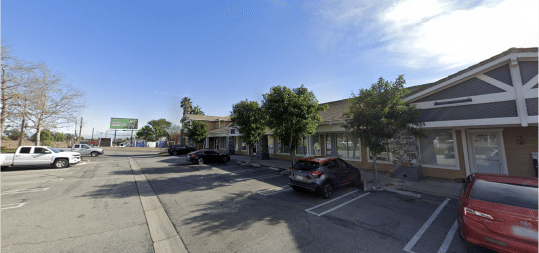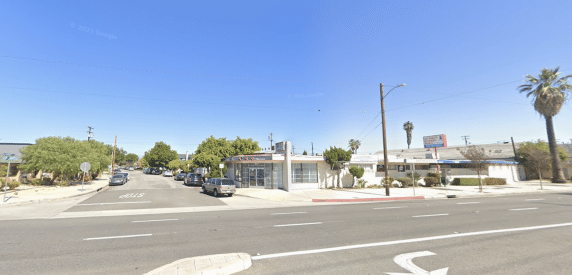
Domestic violence is typically described when spouses or cohabitants enter in verbal and or physical abuse towards one another. There are many variations of domestic violence penal code charges but the most common is Penal Code section 243(E)(1) and Penal Code section 273.5(A). The difference between these two charges is a Felony or Misdemeanor. Unfortunately, domestic violence is a quite common arrest. Thousands of households experience some form of domestic violence or abuse. Research has shown us that there are a variety of reasons why domestic violence occurs at such frequent rates. A mix of factors such as infidelity, financial issues, divorce, or separation, and or simply just falling out of love are just a few examples to point out. When someone is arrested for domestic violence, it is important to understand the processes that ensue. In this article, we will discuss some definitions, examples, scenarios, and most importantly what to do.
As mentioned before there are two common types of domestic violence, a misdemeanor, and a felony. On average, for a felony domestic violence PC 273.5(A), we can expect the bail to be set anywhere between $30,000 to $50,000 and for misdemeanor domestic violence, PC 243(E)(1), the bail is usually between $10,000 to $30,000. The variance in bail amounts is based on where the arrest took place, priors and how serious the injuries are. The bail schedules dictate the amount of bail required and each county has a different bail amount. If your loved one has been arrested for domestic violence, contact us for immediate assistance.
Most domestic violence charges start off as misdemeanors. When the altercation escalates to something more violent resulting in bodily injury or criminal threats, PC 422. When a domestic violence situation takes place, there are other elements that could be present that could result in additional charges being filed such as false imprisonment PC 236 or if the altercation takes place in the presence of children PC 273 A, known as child endangerment. These situations can easily spiral out of control which could result in higher bail amounts depending on what elements were present. Domestic violence charges are considered “wobblers” and can go back and forth between felonies or misdemeanors.
Here is an example, John and Maria have been dating for 3 years. They decide to move in together. A few months later, there is an argument about finances, this argument escalates and as a result, the neighbors become concerned and call 911. The police are dispatched and notice that Maria has a bruise, in most situations, the police will arrest John for domestic violence, since there are visible injuries, its possible John may get arrested for a Felony. Just because John was arrested for a Felony does not mean that his case is a Felony. The district attorney must review the report to determine if there is enough evidence to substantiate the charges presented against John or could end up rejecting the case, or the district attorney ends up refiling John’s matter as a misdemeanor instead. It is recommended to speak to an experienced criminal defense attorney about your specific situation.
Depending on the defendant's past conduct, and the elements present in the current situation, these are some potential consequences; jail time, a criminal conviction on your background, probation, hefty fees, and penalty assessments, in some cases could be a strikable offense and the loss of your second amendment rights, the right to bear arms. If the defendant is a gun owner, he or she will be ordered to surrender their firearms within a certain period, or the police could confiscate the weapons. The arresting agency can also issue a “protective order” to stay away from the other party for a specific time indicated on the order. This is regardless of the other party wants it or not. A protective order often gets confused with a restraining order. In addition, he or she could also lose their employment, or the inability to apply for or renew special credentials such as security clearances, guard cardholders, pharmacy technicians, nurses, RN’s are just a few examples.
Securing the right to bail is paramount because there could be so much at stake or the limitations a domestic violence charge can have on you in the future. Through our experience, when individuals do not make bail, it is common for a defendant to take a plea deal at their arraignment because of the sheer pressure of wanting to be released from jail. What a lot of individuals do not understand, are the lifelong effects this can have.
When a defendant posts bail, in most cases their arraignment or first court date is pushed out for a later date. This will enable the defendant to seek help, contact an attorney and put together a defense for his or her case. It is often mistaken that individuals faced with these situations believe that if their spouses or victims come to court, that they can drop the charges against them. This is not true; the district attorney considers the facts of what happened and often are unaware of the dynamics of the individual’s relationship. Taking the time to present these elements are important, and based on the facts of the case, sometimes we need to consider alternatives such as marriage counselors, anger management, substance abuse counseling and/or seeking the help of a family therapist can help aid the defendant in securing a better disposition on their case. Please speak to an experienced criminal defense lawyer for more information. Seeking help is almost impossible from the confines of a jail cell. Securing your release by bailing out can help you or your loved one in the journey to mend broken relationships.
There are times when the police arrest the wrong person, the victim is arrested rather than the aggressor because of how the altercation was perceived. Or the police arrest and book someone for a felony when it should have been a misdemeanor or vice versa. Or there was a dispute, the neighbor or witness decides to call the police but there was not a real domestic violence and yet an arrest is still made because of what elements are present during the police’s investigation. There are many possibilities and is recommended you speak to an experienced licensed criminal defense lawyer and go over the specifics of your case.
Shortly after an arrest, you need to make note of the arresting agency, the defendants full name and date of birth. Call us immediately, we will contact the jailer immediately and gather the following information, defendants full name, booking number, charge(s) and the bail amount requested. It's important to note that some agencies are faster than others, depending on how busy that jail maybe, it could take a few hours for the defendant to clear for bail. The reason we need to wait for clearance is because the defendant may be on probation or have other active warrants. We will never charge you anything unless we are going to secure your loved one’s release. Before we commit to a bail bond agreement, we need to be sure that the defendant arrests is not a detention only. If so, there is no need to move forward, simply wait for the defendant to be released.
Once we have established the information needed, our agents can meet you at the convenience of our offices 24/7 days a week, send you DocuSign agreements by email and or meet at the jail facility or come to your home or workplace. We aim to simplify the bail bonds process so that we can focus on what matters most, reuniting you with your loved one. Seeing the joy it brings families is what we love doing, and knowing that we facilitated the reunification is a reward in itself.
Now that we have secured your loved one’s release, what is next? After posting bond, we will make arrangements to meet the defendant within 48 hours. Our meeting is intended to go over some provisions of bail and fill out a bail application. We also go over our contact information and provide the defendant with details such as court dates, courthouse address and charge information. Earlier in this article, we discussed the protective order, there are some police agencies who issue them right away and others will not issue immediately until we get to our first court date. It is possible to either wait for the order to expire to establish contact again or make arrangements with the court to modify the protective order to “no negative contact”. This is still a protective order but with lifted or modified restrictions. You should consult with an experienced and licensed criminal defense attorney.
The time between your bail out date and your next scheduled court date, will allow the defendant some time needed to start taking care of personal affairs, secure counsel, and start putting together evidence to help the defendant’s case.
Waiting to see what happens is another option. There are a few things to consider with this option, usually when a defendant is arrested, he or she must be arraigned within 72 hours from the date of detention. If no charges are filed within this period, the court will release the defendant pending a further investigation of the incident. The statutes of limitations for a felony are 3 years and for a misdemeanor its 1 year. During this period, it is important to establish contact with the court or district attorney’s office to obtain filing status. Unless the district attorney confirms the case will be declined also known as a DA rejection. In the unfortunate event the case is filed, we must maintain contact to ensure that the courts will not issue a warrant.
There are times when defendants are unaware of a pending warrant and just assumed that their case was rejected. This is the worst-case scenario, if this happens to you or a loved one, call us immediately for immediate assistance. If you find out your case has been filed, the first thing we need to do is figure out the filing courthouse, contact the court clerk and have your case added to the calendar. In situations like this, its possible to convince the court to release the defendant on his or her own recognizance. If the court denies the request, we could ask the court for an extension to come back and have bail posted. This is at the discretion of the judge and should not be taken as a guarantee. In events like these, we can escort you to the court and be on standby just in case the courts make bail a requirement, we can post bond right then in there. Some courthouses will remand the defendant because the court may not have the ability to process a bond at the clerk’s offices. For more information on specifics on this topic, contact us. If you or your loved one is released on his or her own recognizance, our agents will shake hands and be on our way. We will never charge unless we are securing somebody’s release. This is one of many ways why we stand out from our competitors. We know that by going the extra mile with one client, even though we may not end up doing business together, will end up referring us to people in need because of the service and courtesy we offered from the beginning.
If the defendant is in custody and the case is filed, he or she will be arraigned. During the arraignment, the defendant will be presented with their charges and be given an opportunity to enter a plea. It is always recommended to speak to your lawyer before entering a plea. Once the defendant enters a not guilty plea, the court will address the issue of bail and will decide if the defendant could be granted release on his or her own recognizance. If the defendant pleads no contest or guilty, then he or she will not be eligible for bail.
After the arraignment, the court will set a new court date and remand the defendant back into custody. Depending on the arrest location and courthouse, the defendant may be transferred from a police department jail to a county facility. For more information on this process, contact us. The booking process will be repeated and will have to wait for a few hours before the jail systems update their databases with the new information. It’s also important to note that the court will also address the issue of a protective order.
It's difficult to know what exactly will happen, getting information from the police, courts, or public defenders can be difficult unless you have retained private counsel and know that whichever way we can help we will. When contacting our agency, we will always be sure to lay out all the options to make an informative decision. Sitting in jail can feel like an eternity and as long as we are around, we will go above and beyond to help you and your loved one. We will always look for ways to make our clients eligible for the best rates and apply the best discounts, offer flexible payment plans, and never charge our clients extra fees or annual renewable premiums.
What separates us from our competitors is our expertise in dealing with domestic violence matters. We have helped literally hundreds of individuals faced with this dilemma daily. It's easy to get lost in all the confusion and stress following your loved one’s arrest. It's as easy as picking up the phone and calling us. Not only will we answer all your questions, but we will also explain and guide you throughout the entire process. From start to finish, we will be there every step of the way. There are no surprises at CBB Bail Bonds, just solutions and real help. We are just one call away. Domestic violence is unfortunate, but sometimes these situations in the end help us learn more about ourselves and the relationships we hold with one another. And in the end, make us stronger and create stronger bonds with our loved ones. The best thing to do is avoid the situation altogether, seek counseling or therapy through family, friends, or contacting your insurance provider can help avoid altercations in the future. We know that some situations cannot be avoided, but they can be mitigated when they happen. Regardless of the facts, if we find ourselves in situations, there are ways to isolate the incident, demonstrate a state of remorse, character, and the fact that we are willing to do whatever it takes to rectify the situation.
"*" indicates required fields






